- Home
- William Shakespeare
Love's Labour's Lost (Arden Shakespeare) Page 4
Love's Labour's Lost (Arden Shakespeare) Read online
Page 4
BEROWNE This is not so well as I looked for266, but the best that
ever I heard.
KING Ay, the best for the worst. But, sirrah268, what say you
to this?
COSTARD Sir, I confess270 the wench.
KING Did you hear the proclamation?
COSTARD I do confess much of the hearing it but little of the
marking of273 it.
KING It was proclaimed a year's imprisonment to be taken
with a wench.
COSTARD I was taken with none, sir: I was taken with a
damsel.
KING Well, it was proclaimed damsel.
COSTARD This was no damsel, neither, sir: she was a virgin.
KING It is so varied280 too, for it was proclaimed virgin.
COSTARD If it were, I deny her virginity: I was taken with a
maid.
KING This maid283 will not serve your turn, sir.
COSTARD This maid will serve my turn,283 sir.
KING Sir, I will pronounce your sentence: you shall fast a
week with bran and water.
COSTARD I had rather pray a month with mutton and287
porridge.
KING And Don Armado shall be your keeper.
My Lord Berowne, see him delivered o'er290:
And go we, lords, to put in practice that
Which each to other hath so strongly sworn.
[Exeunt King, Longaville and Dumaine]
BEROWNE I'll lay my head to any goodman293's hat,
These oaths and laws will prove an idle294 scorn.
Sirrah, come on.
COSTARD I suffer for the truth, sir, for true296 it is, I was taken
with Jaquenetta, and Jaquenetta is a true girl. And therefore
welcome the sour cup of prosperity! Affliction298 may one day
smile again, and until then, sit down299, sorrow!
Exeunt
[Act 1 Scene 2]
running scene 1 continues
Enter Armado and Moth, his page
ARMADO Boy, what sign is it1 when a man of great spirit grows
melancholy?
MOTH A great sign, sir, that he will look sad.
ARMADO Why, sadness is one and the self-same thing, dear
imp5.
MOTH No, no, O lord, sir, no.
ARMADO How canst thou part7 sadness and melancholy, my
tender juvenal8?
MOTH By a familiar demonstration of the working9, my
tough senor.
ARMADO Why tough senor? Why tough senor?
MOTH Why tender juvenal? Why tender juvenal?
ARMADO I spoke it, tender juvenal, as a congruent epitheton13
appertaining to thy young days, which we may nominate14
tender.
MOTH And I, tough senior, as an appertinent16 title to your
old time, which we may name tough.
ARMADO Pretty and apt.
MOTH How mean you, sir? I pretty, and my saying apt? Or I
apt, and my saying pretty?
ARMADO Thou pretty21, because little.
MOTH Little pretty, because little.21 Wherefore apt?
ARMADO And therefore apt, because quick23.
MOTH Speak you this in my praise, master?
ARMADO In thy condign25 praise.
MOTH I will praise an eel with the same praise.
ARMADO What, that an eel is ingenious?
MOTH That an eel is quick28.
ARMADO I do say thou art quick in answers. Thou heat'st my29
blood.
MOTH I am answered, sir.
ARMADO I love not to be crossed32.
Aside
MOTH He speaks the mere contrary: crosses33 love not him.
ARMADO I have promised to study three years with the duke35.
MOTH You may do it in an hour, sir.
ARMADO Impossible.
MOTH How many is one thrice told38?
ARMADO I am ill at reckoning. It fits the spirit of a tapster39.
MOTH You are a gentleman and a gamester40, sir.
ARMADO I confess both: they are both the varnish of a
complete42 man.
MOTH Then I am sure you know how much the gross sum
of deuce-ace44 amounts to.
ARMADO It doth amount to one more than two.
MOTH Which the base vulgar46 call three.
ARMADO True.
MOTH Why, sir, is this such a piece48 of study? Now here's
three studied ere you'll thrice wink. And how easy it is to put
'years' to the word 'three', and study three years in two
words, the dancing horse51 will tell you.
ARMADO A most fine figure52!
MOTH To prove you a cipher53.
Aside
ARMADO I will hereupon confess I am in love. And as it is base54
for a soldier to love, so am I in love with a base wench. If
drawing my sword against the humour of affection56 would
deliver me from the reprobate57 thought of it, I would take
desire prisoner, and ransom him to any French courtier for a
new-devised curtsy. I think scorn59 to sigh: methinks I should
outswear Cupid60. Comfort me, boy. What great men have
been in love?
MOTH Hercules62, master.
ARMADO Most sweet Hercules! More authority, dear boy,
name more; and, sweet my child, let them be men of good
repute and carriage65.
MOTH Samson, master. He was a man of good carriage66,
great carriage, for he carried the town-gates on his back like67
a porter, and he was in love.
ARMADO O well-knit69 Samson, strong-jointed Samson! I do
excel thee in my rapier70 as much as thou didst me in carrying
gates. I am in love too. Who was Samson's love, my dear
Moth?
MOTH A woman, master.
ARMADO Of what complexion74?
MOTH Of all the four75, or the three, or the two, or one of the
four.
ARMADO Tell me precisely of what complexion.
MOTH Of the sea-water green78, sir.
ARMADO Is that one of the four complexions?
MOTH As I have read, sir, and the best of them too.
ARMADO Green81 indeed is the colour of lovers, but to have a
love of that colour, methinks Samson had small reason for it.
He surely affected her for her wit83.
MOTH It was so, sir, for she had a green84 wit.
ARMADO My love is most immaculate white and red.
MOTH Most maculate86 thoughts, master, are masked under
such colours87.
ARMADO Define88, define, well-educated infant.
MOTH My father's wit and my mother's tongue assist me!
ARMADO Sweet invocation of a child, most pretty and
pathetical91!
MOTH If she be made of92 white and red,
Her faults will ne'er be known,
For blushing cheeks by faults are bred
And fears by pale white shown.
Then if she fear, or be to blame,
By this97 you shall not know,
For still98 her cheeks possess the same
Which native she doth owe99.
A dangerous rhyme, master, against the reason of white and100
red.101
ARMADO Is there not a ballad, boy, of the King and the102
Beggar?
MOTH The world was very guilty of such a ballad some
three ages since105, but I think now 'tis not to be found, or, if it
were, it would neither serve106 for the writing nor the tune.
ARMADO I will have that subject newly writ o'er, that I may
example my digression108 by some mighty precedent. Boy, I do
love that country girl that I took in the park with the rational109
hind Co
stard. She deserves well.
Aside
MOTH To be whipped: and yet111 a better love than
my master.
ARMADO Sing, boy. My spirit grows heavy113 in love.
Aside
MOTH And that's great marvel, loving a light114 wench.
ARMADO I say sing.
MOTH Forbear till this company be past.
Enter [Costard, the] Clown,116 [Dull, the] Constable and [Jaquenetta, a] wench
DULL Sir, the duke's pleasure is that you keep Costard safe:
and you must let him take no delight nor no penance118, but he
must fast three days a week. For119 this damsel, I must keep her
at the park: she is allowed for the dey-woman120. Fare you well.
Exit
Aside
ARMADO I do betray myself with blushing.-- Maid!
JAQUENETTA Man?
ARMADO I will visit thee at the lodge123.
JAQUENETTA That's hereby124.
ARMADO I know where it is situate.
JAQUENETTA Lord, how wise you are!
ARMADO I will tell thee wonders.
JAQUENETTA With that face128?
ARMADO I love thee.
JAQUENETTA So I heard you say.
ARMADO And so farewell.
JAQUENETTA Fair weather after you.
COSTARD Come, Jaquenetta, away.
Exit [Jaquenetta]
ARMADO Villain134, thou shalt fast for thy offences ere thou be
pardoned.
COSTARD Well, sir, I hope, when I do it, I shall do it on a full136
stomach.
ARMADO Thou shalt be heavily punished.
COSTARD I am more bound to you than your fellows139, for they
are but lightly140 rewarded.
To Moth
ARMADO Take away this villain. Shut him up.
MOTH Come, you transgressing slave, away!
COSTARD Let me not be pent up, sir, I will fast being loose143.
MOTH No, sir, that were fast and loose. Thou shalt to144
prison.
COSTARD Well, if ever I do see the merry days of desolation146
that I have seen, some shall see--
MOTH What shall some see?
COSTARD Nay, nothing, Master Moth, but what they look
upon. It is not for prisoners to be too silent150 in their words and
therefore I will say nothing. I thank God I have as little151
patience as another man and therefore I can be quiet.
[Exeunt Moth and Costard]
ARMADO I do affect153 the very ground, which is base, where her
shoe, which is baser, guided by her foot, which is basest, doth
tread. I shall be forsworn, which is a great argument155 of
falsehood, if I love. And how can that be true love which is
falsely attempted? Love is a familiar157, love is a devil. There is
no evil angel but love. Yet Samson was so tempted, and he
had an excellent strength. Yet was Solomon159 so seduced, and
he had a very good wit. Cupid's butt-shaft160 is too hard for
Hercules' club, and therefore too much odds161 for a Spaniard's
rapier. The first and second cause will not serve my turn162. The
passado he respects not, the duello163 he regards not. His
disgrace is to be called boy, but his glory is to subdue men.
Adieu, valour: rust, rapier: be still, drum, for your manager165
is in love; yea, he loveth. Assist me, some extemporal god of166
rhyme, for I am sure I shall turn sonnet167. Devise, wit: write,
pen, for I am for whole volumes in folio168.
Exit
Act 2 [Scene 1]
running scene 2
Enter the Princess of France with three attending Ladies [Rosaline, Maria and Katherine] and three Lords [Boyet and two others]
BOYET Now, madam, summon up your dearest spirits1.
Consider who the king your father sends,
To whom he sends, and what's his embassy3:
Yourself, held precious in the world's esteem,
To parley with the sole inheritor5
Of all perfections that a man may owe6,
Matchless Navarre, the plea7 of no less weight
Than Aquitaine, a dowry for a queen.
Be now as prodigal of all dear9 grace
As Nature was in making graces dear10
When she did starve the general world beside11
And prodigally gave them all to you.
PRINCESS Good Lord Boyet, my beauty, though but mean13,
Needs not the painted flourish of your praise.
Beauty is bought by judgement of the eye,
Not uttered by base sale of chapmen's16 tongues:
I am less proud to hear you tell17 my worth
Than you much willing to be counted18 wise
In spending19 your wit in the praise of mine.
But now to task the tasker20. Good Boyet,
You are not ignorant all-telling fame21
Doth noise abroad22 Navarre hath made a vow,
Till painful23 study shall outwear three years,
No woman may approach his silent court:
Therefore to's seemeth it a needful25 course,
Before we enter his forbidden gates,
To know his pleasure, and in that behalf27,
Bold of your worthiness, we single28 you
As our best-moving fair solicitor29.
Tell him the daughter of the King of France,
On serious business craving quick dispatch,
Importunes personal conference32 with his grace.
Haste, signify so much, while we attend33,
Like humble-visaged suitors, his high will.
BOYET Proud of employment, willingly35 I go.
Exit
PRINCESS All pride36 is willing pride, and yours is so.
Who are the votaries37, my loving lords,
That are vow-fellows with this virtuous duke?
A LORD Longaville is one.
PRINCESS Know you the man?
MARIA I know him, madam: at a marriage-feast
Between Lord Perigort and the beauteous heir42
Of Jaques Falconbridge, solemnized
In Normandy44, saw I this Longaville.
A man of sovereign parts45 he is esteemed,
Well fitted in arts, glorious in arms46.
Nothing becomes him ill that he would well47.
The only soil of his fair virtue's gloss48,
If virtue's gloss will stain with any soil,
Is a sharp wit matched with too blunt a will50,
Whose edge hath power to cut, whose will still51 wills
It should none spare that come within his52 power.
PRINCESS Some merry mocking lord, belike53: is't so?
MARIA They say so most that most his humours54 know.
PRINCESS Such short-lived wits do wither as they grow.
Who are the rest?
KATHERINE The young Dumaine, a well-accomplished youth,
Of all that virtue love for virtue58 loved:
Most power to do most harm, least knowing ill59,
For he hath wit to make an ill shape good60,
And shape to win grace though61 he had no wit.
I saw him at the Duke Alencon's62 once,
And much too little of that good I saw
Is my report to his great worthiness.63
ROSALINE Another of these students at that time
Was there with him, if I have heard a truth.
Berowne they call him, but a merrier man,
Within the limit of becoming68 mirth,
I never spent an hour's talk withal69.
His eye begets occasion70 for his wit,
For every object that the one doth catch71,
The other turns to a mirth-moving72 jest,
Which his fair tongue, conceit's expositor73, br />
Delivers in such apt and gracious words
That aged ears play truant at75 his tales
And younger hearings are quite ravished,
So sweet and voluble77 is his discourse.
PRINCESS God bless my ladies! Are they all in love,
That every one her own hath garnished
With such bedecking80 ornaments of praise?
MARIA Here comes Boyet.
Enter Boyet
PRINCESS Now, what admittance82, lord?
BOYET Navarre had notice of your fair approach,
And he and his competitors84 in oath
Were all addressed85 to meet you, gentle lady,
Before I came. Marry, thus much I have learned:
He rather means to lodge you in the field87,
Like one that comes here to besiege his court,
Than seek a dispensation for his oath
To let you enter his unpeopled90 house.
Here comes Navarre.
Enter [the King of] Navarre, Longaville, Dumaine, Berowne [and Attendants]
KING Fair princess, welcome to the court of Navarre.
PRINCESS 'Fair' I give you back again, and 'welcome' I have
not yet: the roof of this court94 is too high to be yours, and
welcome to the wide fields too base to be mine.
KING You shall be welcome, madam, to my court.
PRINCESS I will be welcome, then. Conduct me thither.
KING Hear me, dear lady: I have sworn an oath.
PRINCESS Our Lady help my lord! He'll be forsworn.
KING Not for the world, fair madam, by my will100.
PRINCESS Why, will101 shall break it: will, and nothing else.
KING Your ladyship is ignorant what it is.
PRINCESS Were my lord so, his ignorance were wise,
Where104 now his knowledge must prove ignorance.
I hear your grace hath sworn out house-keeping105.
'Tis deadly sin to keep that oath, my lord,
And sin to break it.
But pardon me. I am too sudden-bold:
To teach a teacher ill beseemeth109 me.
Gives a paper
Vouchsafe110 to read the purpose of my coming,
And suddenly resolve me in my suit111.
KING Madam, I will, if suddenly I may.
Reads
PRINCESS You will the sooner that I were away113,
For you'll prove perjured if you make me stay.
To Rosaline
BEROWNE Did not I dance with you in Brabant115 once?
ROSALINE Did not I dance with you in Brabant once?
BEROWNE I know you did.
ROSALINE How needless was it then to ask the question!
BEROWNE You must not be so quick119.
ROSALINE 'Tis long120 of you that spur me with such questions.
BEROWNE Your wit's too hot121, it speeds too fast, 'twill tire.
ROSALINE Not till it leave the rider in the mire122.
BEROWNE What time o'day123?
ROSALINE The hour that fools should ask.
BEROWNE Now fair befall your mask125.
ROSALINE Fair fall126 the face it covers.
BEROWNE And send you many lovers.
ROSALINE Amen, so128 you be none.
Walks away
BEROWNE Nay, then will I be gone.

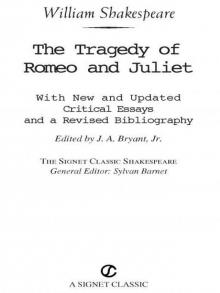 Romeo and Juliet
Romeo and Juliet As You Like It (Folger Shakespeare Library)
As You Like It (Folger Shakespeare Library)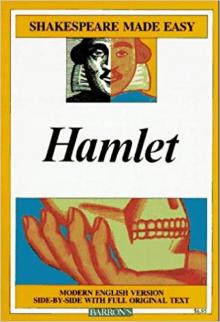 Hamlet
Hamlet Richard II (Folger Shakespeare Library)
Richard II (Folger Shakespeare Library) Macbeth
Macbeth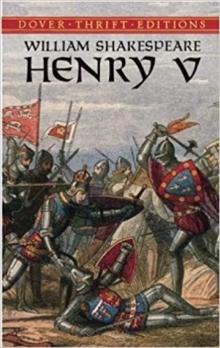 Henry V
Henry V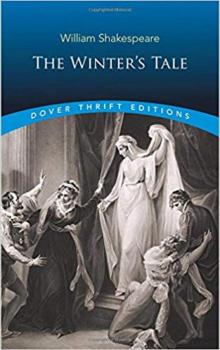 The Winter's Tale
The Winter's Tale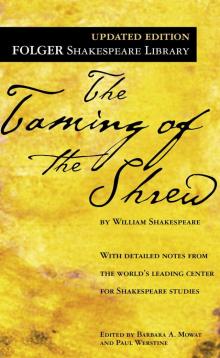 The Taming of the Shrew
The Taming of the Shrew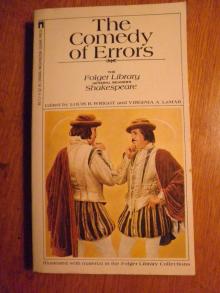 The Comedy of Errors
The Comedy of Errors King Lear (Folger Shakespeare Library)
King Lear (Folger Shakespeare Library)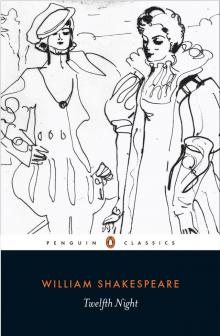 Twelfth Night
Twelfth Night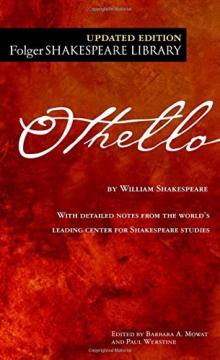 Othello
Othello The Two Gentlemen of Verona
The Two Gentlemen of Verona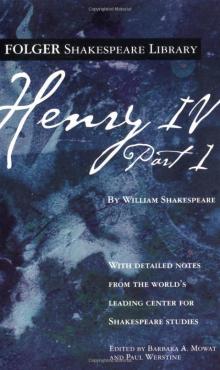 Henry IV, Part 1 (Folger Shakespeare Library)
Henry IV, Part 1 (Folger Shakespeare Library) King John/Henry VIII (Signet Classics)
King John/Henry VIII (Signet Classics)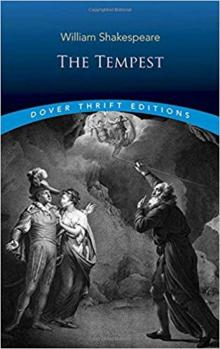 The Tempest
The Tempest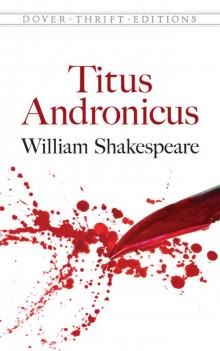 Titus Andronicus (Dover Publications)
Titus Andronicus (Dover Publications)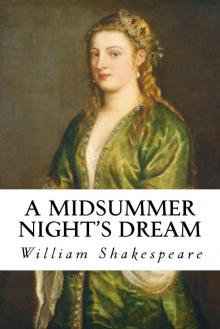 A Midsummer Night's Dream
A Midsummer Night's Dream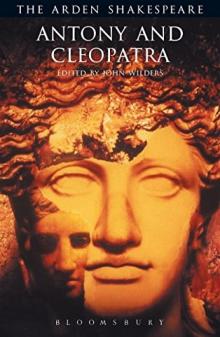 Antony and Cleopatra (Arden Shakespeare: Third Series)
Antony and Cleopatra (Arden Shakespeare: Third Series)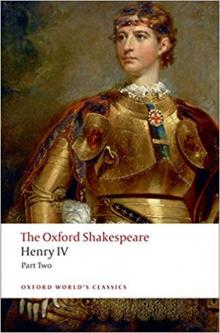 The Oxford Shakespeare: Henry IV, Part 2 (Oxford World's Classics)
The Oxford Shakespeare: Henry IV, Part 2 (Oxford World's Classics)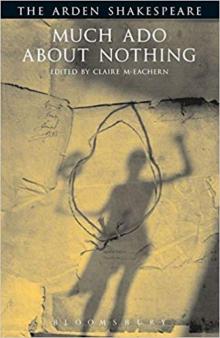 Much Ado About Nothing (Arden Shakespeare: Third Series)
Much Ado About Nothing (Arden Shakespeare: Third Series) All's Well That Ends Well
All's Well That Ends Well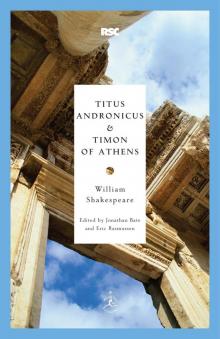 Titus Andronicus & Timon of Athens
Titus Andronicus & Timon of Athens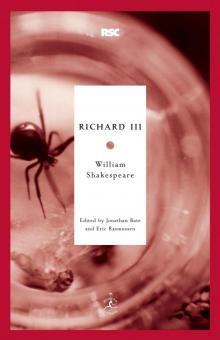 Richard III (Modern Library Classics)
Richard III (Modern Library Classics) Coriolanus
Coriolanus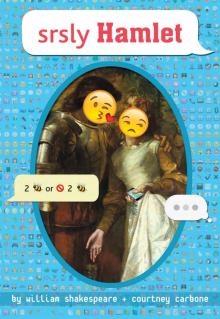 srsly Hamlet (OMG Shakespeare)
srsly Hamlet (OMG Shakespeare)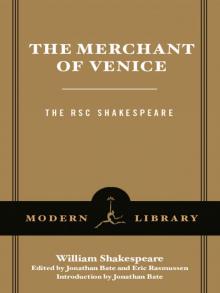 The Merchant of Venice
The Merchant of Venice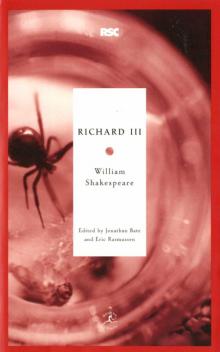 Richard III
Richard III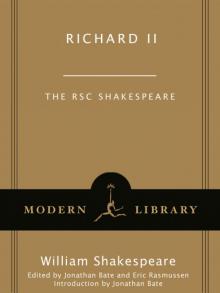 Richard II
Richard II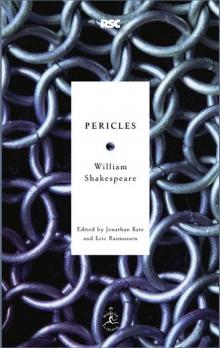 Pericles
Pericles As You Like It
As You Like It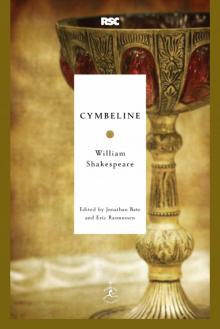 Cymbeline
Cymbeline Alls Wel that ends Well
Alls Wel that ends Well YOLO Juliet
YOLO Juliet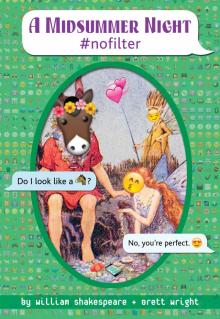 A Midsummer Night #nofilter
A Midsummer Night #nofilter Love's Labour's Lost
Love's Labour's Lost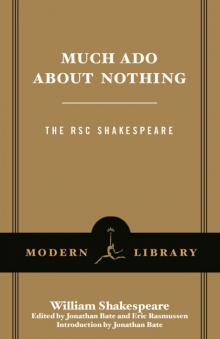 Much Ado About Nothing
Much Ado About Nothing Romeo & Juliet & Vampires
Romeo & Juliet & Vampires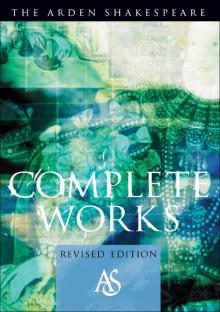 The Arden Shakespeare Complete Works
The Arden Shakespeare Complete Works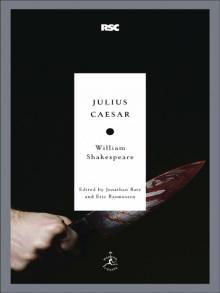 Julius Caesar
Julius Caesar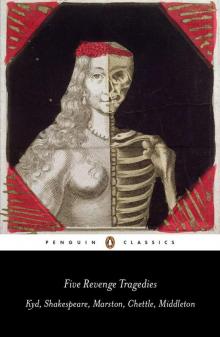 Five Revenge Tragedies: The Spanish Tragedy, Hamlet, Antonio's Revenge, The Tragedy of Hoffman, The Revenger's Tragedy (Penguin Classics)
Five Revenge Tragedies: The Spanish Tragedy, Hamlet, Antonio's Revenge, The Tragedy of Hoffman, The Revenger's Tragedy (Penguin Classics)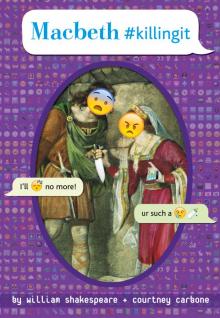 Macbeth #killingit
Macbeth #killingit The Oxford Shakespeare: The Complete Works
The Oxford Shakespeare: The Complete Works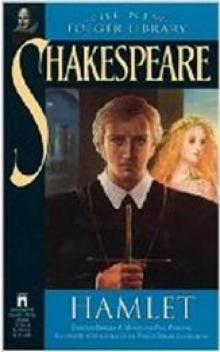 Hamlet, Prince of Denmark (Collins edition)
Hamlet, Prince of Denmark (Collins edition) King John & Henry VIII
King John & Henry VIII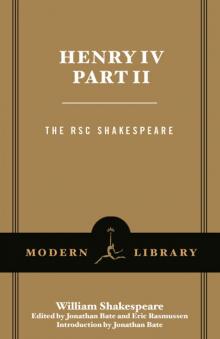 Henry IV, Part 2
Henry IV, Part 2 Complete Plays, The
Complete Plays, The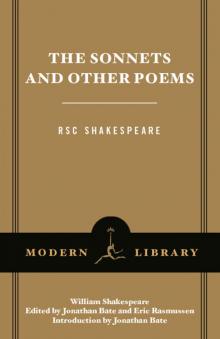 The Sonnets and Other Poems
The Sonnets and Other Poems Antony and Cleopatra
Antony and Cleopatra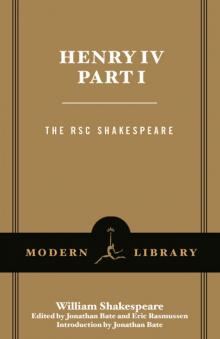 Henry IV, Part 1
Henry IV, Part 1 Is This a Dagger Which I See Before Me?
Is This a Dagger Which I See Before Me? The Complete Works of William Shakespeare In Plain and Simple English (Translated)
The Complete Works of William Shakespeare In Plain and Simple English (Translated) The Sonnets
The Sonnets